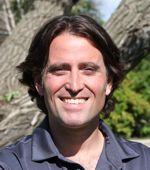Loring, Philip

Philip Loring is a broadly trained ecological anthropologist with interests in food security and sovereignty, community sustainability, and environmental change. His research explores the various issues facing coastal communities—what unites them, what divides them, and what makes them sustainable, or not. He and his students have ongoing research in communities across Alaska and Western and Arctic Canada, as well as in Ecuador and Saskatchewan. His recent publications focus on the interplay of conflict, diversity, governance, environmental change in Alaska fisheries. He is active in the research community: President of the Arctic Division of the American Association for the Advancement of Science, a co-lead for the “human activity” theme for MEOPAR network; a member of governance team of the Rural Policy Learning Commons, an international partnership network based in Canada; co-lead of the “Fish as Food” cluster for the Too Big to Ignore Network, and is a founding member of the North American Food Systems Network. His website can be found at www.conservationofchange.org and he is active on Twitter as @conservechange.
GEOG*3320 Food Systems: Issues in Security and Sustainability
GEOG*6340 Human Environment Relations
- Coastal Routes is a network of researchers, coastal communities, and non-profit organizations all united by our mission of supporting verdant, sustainable, and just coastal livelihoods and places.
- This project seeks to understand how we can better foster collaboration over conflict, support sustainable livelihoods for farmers and ranchers while addressing wildlife and water quality and flow concerns, and deal with a changing climate that includes more extreme swings in water availability.
P.A. Loring, S. Minnes, and V. Gaspard. 2018 “Stoking conflict between farming and conservation hurts everyone.” The Conversation. 17 Jan 2019.
P.A. Loring, and R. Chuenpagdee. 2018 “You can eat your fish and fight climate change too". The Conversation. 27 November 2017.
P.A. Loring and M.S. Hinzman, 2018 “They’re all really important, but…”: unpacking how people prioritize values for the marine environment in Haida Gwaii, British Columbia.” Ecological Economics 152:367-377.
M. Hitomi and P.A. Loring. 2018 “Hidden Participants and Unheard Voices? Systematic Review of Gender, Age, and other Influences on Local and Traditional Knowledge Research in the North.” FACETS.
S. Breen, P.A. Loring, H. Baulch. 2018 “When a water problem is more than a water problem: fragmentation, framing, and the case of agricultural wetland drainage.” Frontiers in Environmental Science 129:6.
H.P. Huntington, P.A. Loring, G. Gannon, S. Gearheard, S.C. Gerlach, and L.C. Hamilton. 2017 “Staying in place during times of change in Arctic Alaska: The implications of attachment, alternatives, and buffering". Regional Environmental Change.